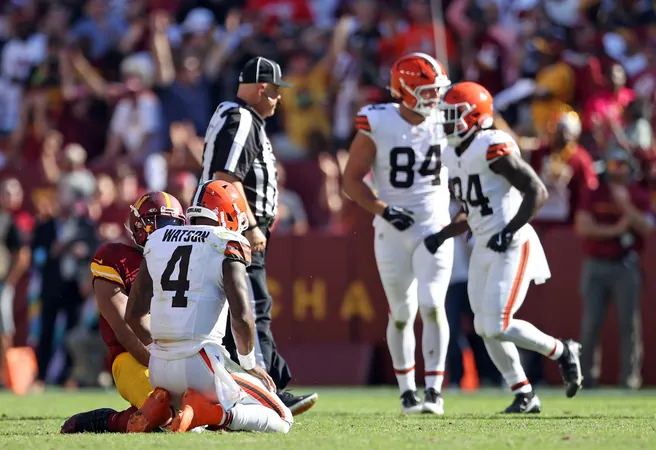
Outbreak Alert: 4 Northeastern Graduate Students Contract Chickenpox! What You Need to Know
2024-10-07
Author: Jessica Wong
Northeastern University Chickenpox Outbreak
Last week, Northeastern University revealed that four graduate students have been diagnosed with chickenpox. This alarming news came directly from the university's health and counseling services, sparking concern across the campus.
All affected students are currently receiving treatment and are adhering to strict isolation protocols to prevent further spread of the virus. Notably, these students reside off-campus in the Boston area, raising questions about community exposure.
Public Health Response
The Boston Public Health Commission (BPHC) has issued guidelines stipulating that anyone who is unvaccinated or has never had chickenpox must isolate for a period if they have been exposed to an infected individual. This isolation begins eight days after the last exposure and lasts for 21 days.
Understanding Chickenpox
But what exactly is chickenpox? Caused by the highly contagious varicella virus, chickenpox can be transmitted through direct contact with the fluid from the rash or through respiratory droplets when an infected person coughs or sneezes. The Center for Disease Control and Prevention (CDC) notes that the disease can spread from one to two days before any rash appears and remains contagious until the rash has crusted over.
Vaccination Importance
Fortunately, those with previous infections or who have received two doses of the varicella vaccine are generally protected against the disease. Massachusetts law mandates that all university students submit proof of vaccination against varicella, which includes either two vaccine doses or positive antibody titers.
“Protection from chickenpox is crucial in environments like schools and universities where it can spread rapidly,” emphasized Kathleen Conti, a representative from the Massachusetts Department of Public Health. This virus poses heightened risks for those who are pregnant, infants, adolescents, and individuals with compromised immune systems.
Risks and Recommendations
While rare today due to vaccination efforts, chickenpox can still be life-threatening. The CDC warns that unvaccinated healthy adults and children are at significant risk, with some fatalities resulting from contracting the illness from unvaccinated children.
The CDC encourages those who believe they’ve been exposed to get vaccinated immediately, particularly for those who are unvaccinated or have never had the disease. Since the introduction of the chickenpox vaccine in 1995, the US has seen a staggering 97% decline in cases, with fewer than 1,400 hospitalizations and 30 deaths annually.
Symptoms and Actions
Students exhibiting symptoms — including fever, fatigue, and a distinctive rash that may first appear on the face, stomach, or back — should urgently contact their healthcare provider and isolate until assessed by a medical professional.
Stay informed and stay safe, as even a minor outbreak can lead to significant health risks on campus!



 Brasil (PT)
Brasil (PT)
 Canada (EN)
Canada (EN)
 Chile (ES)
Chile (ES)
 España (ES)
España (ES)
 France (FR)
France (FR)
 Hong Kong (EN)
Hong Kong (EN)
 Italia (IT)
Italia (IT)
 日本 (JA)
日本 (JA)
 Magyarország (HU)
Magyarország (HU)
 Norge (NO)
Norge (NO)
 Polska (PL)
Polska (PL)
 Schweiz (DE)
Schweiz (DE)
 Singapore (EN)
Singapore (EN)
 Sverige (SV)
Sverige (SV)
 Suomi (FI)
Suomi (FI)
 Türkiye (TR)
Türkiye (TR)